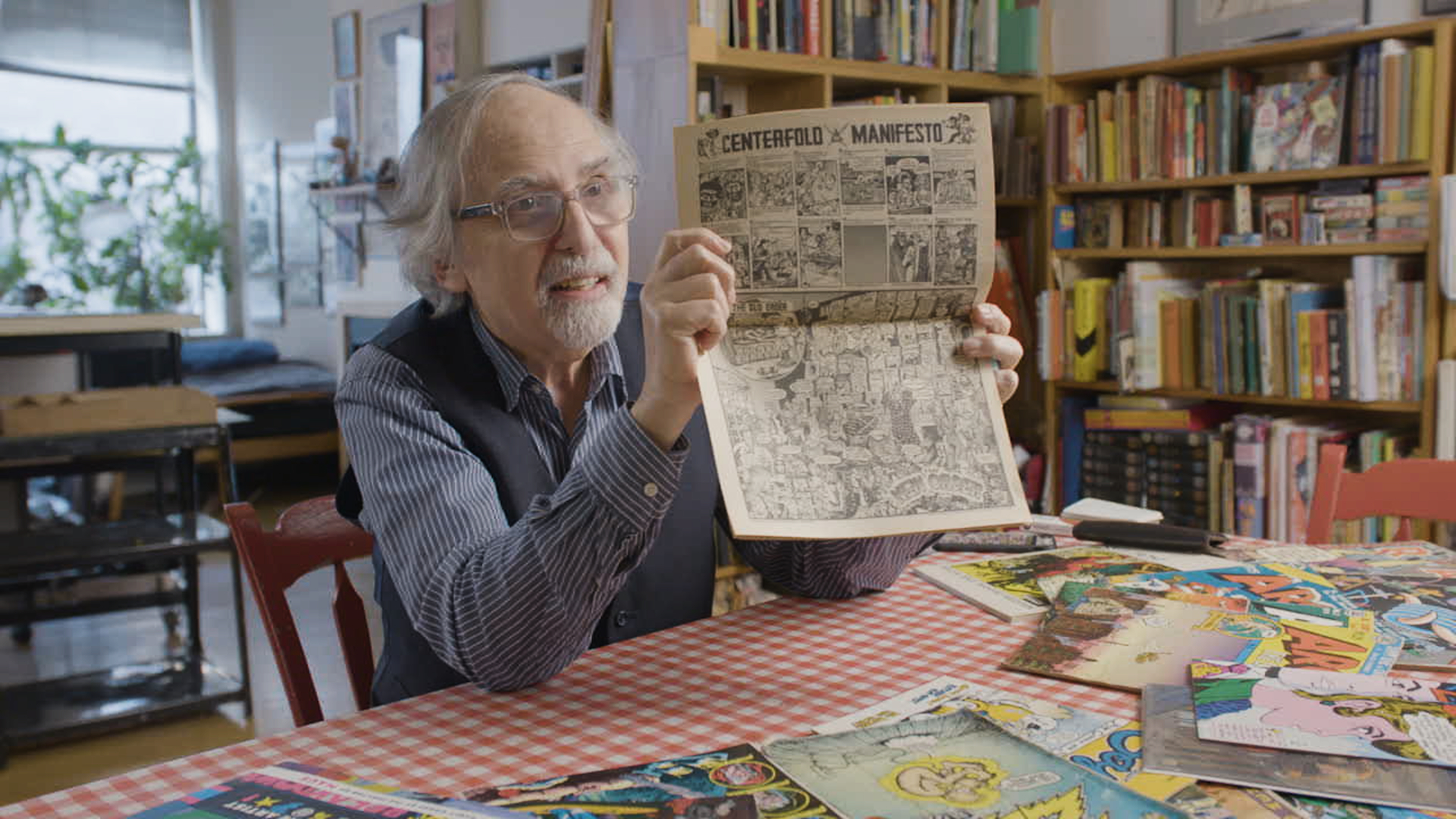
Art Spiegelman: Disaster is My Muse is an intimate documentary about the revolutionary comic book artist and son of Holocaust survivors.
Before I dive into things here, we need to discuss one of the interview subjects. Why is Neil Gaiman still featured in the film and not removed? This has less to do with the recent bombshell article detailing allegations and more to do with the fact that a number of people spoke out prior to the film’s DOC NYC premiere. If it was enough for Amazon MGM Studios to pause production in September 2024, it should have been enough for documentary filmmakers Molly Bernstein and Philip Dolin to remove him from their film. Make no mistake that his presence is going to distract audiences. If it were up to me, I would edit Gaiman out of the film.
In recent years, Art Siegelman has been in the news through no fault of his own, only because of people wanting to ban the Pulitzer Prize-winning graphic novel Maus. He’s making appearances throughout the country, discussing free speech and speaking out against book bans. Siegelman wrote this graphic novel about his parents and their surviving the Holocaust because it was an outlet to sort through his feelings. But anyway, what is it about the Holocaust that is so problematic that people want to ban books? Siegelman is not immune to this, The Diary of Anne Frank is another book that people find problematic. It’s always ironic that the people wanting to ban books by Jews are usually the same people–Xian more often than not–that are pro-Israel for apocalyptic reasons. But I digress.
There’s no doubt that both Maus volumes are his biggest legacy. However, he’s done more work that fans might not know about. For one, he drew provocative covers for The New Yorker for a decade. He also wrote and published another magazine, RAW, with his wife, Françoise Mouly. His career as an artist would never have happened without MAD Magazine piquing his interest and insisting on not leaving without a copy.
The Holocaust has always loomed over him from his childhood. Both parents–Vladek and Anja–survived the Holocaust, losing many family members and were among the few remaining. They had come from a tight-knit family and there’s no doubt that being one of the few survivors led to trauma. As is usually the case, many survivors didn’t talk about their experiences. Art Siegelman was only 20 years old when his mother killed herself. He was late in coming home so he didn’t discover the body–his father did.
Creatives have a way of turning to art to express feelings. In this case, it’s more or less using art to come to terms with his family’s past. Growing up as the child of Holocaust survivors can be a very heavy burden. Some talked about it, others didn’t. No matter who did or didn’t, it didn’t stop the nightmares when they slept. Interestingly, Spiegelman tried his hand at a story on Klu Klux Cats but only made it 10 minutes before stopping. That’s when he got the idea to create Maus, initially a three-page comic strip as the now disgraced Gaiman explains. Again, Neil Gaiman is in the film to discuss Maus. They could have brought on someone at the last minute to replace him but didn’t.
Art Spiegelman: Disaster is My Muse is a good documentary and takes on more meaning during a contemporary fight against fascism–however, the inclusion of one interview subject ultimately hurts the film.
DIRECTORS: Molly Bernstein & Philip Dolin
FEATURING: Art Spiegelman, Françoise Mouly, Dash Spiegelman, Nadja Spiegelman, Ivan Brunetti, Charles Burns, Hillary Chute, Molly Crabapple, Jerry Craft, Aline Kominsky-Crumb, Robert Crumb, Emil Ferris, Neil Gaiman, Bill Griffith, J. Hoberman, Azazel Jacobs, Flo Jacobs, Ken Jacobs, Peter Kuper, Gary Panter, Joe Sacco, R. Sikoryak, Trina Robbins, Chris Ware
Art Spiegelman: Disaster is My Muse holds its Southeast US premiere during the 2025 Miami Jewish Film Festival. Cargo Film & Releasing will release the film in theaters beginning in February 2025. Grade: 3.5/5
Please subscribe to Solzy on Buttondown and visit Dugout Dirt.




